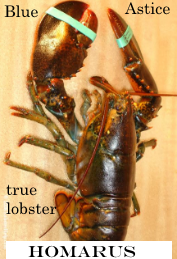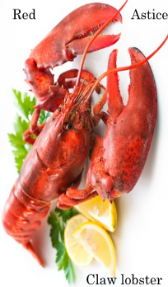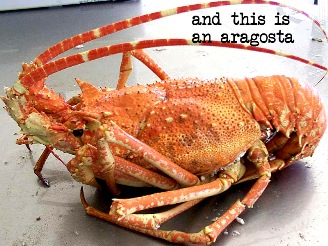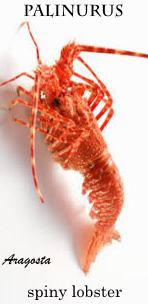So, the Latins thought that crustacean shellfish looked like giant insectinsects , crickescrickets, grasshoppergrasshoppers,locust locusts etc..., and, though the English words appear different now, they are both an adaptation of the same word ' locusta' => OE lopustre => lop[y]ster , and with the voicing of /p/, eventually = lobster . (Source: Shorter Oxford Dictionary )
The Italian word 'aragosta' derives from the same Latin word through the agglutination of the article [l]a-locusta][la locusta] => l' alogostal'alocusta => aragosta. (an inverse phenomenon occurs in "all' amatriciana => alla matriciana")
If you are treating a friend in Boston you probably have no chance of getting your European aragosta, but you can order something quite similar, a Palinurus interruptus, that is a: California spiny lobster.
buonappetito!
Note: Italian also has an individual word for Scyllarus arctus: cicala di mare = slipper/ locust lobster


 no claws :
no claws : 
